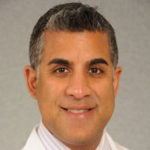Pelvic Congestion is more common in women who have been pregnant, especially with multiple pregnancies. This condition happens as a side effect of pregnancy in about 15 percent of women. While not common, pelvic congestion can also occur in women who have never been pregnant. Women who have varicose veins elsewhere or who have family members with varicosities may also be at increased risk. Occasionally pelvic congestion occurs in postmenopausal women, particularly after standing for prolonged periods of time.
Pelvic congestion occurs when varicose veins develop around the ovaries, like varicose veins that can occur in the legs. This causes blood to build up inside the veins and they become engorged or “congested,” which can cause pain.
Some signs of pelvic congestion include how long the pressure lasts, pain during and/or after intercourse and a high degree of discomfort during menstruation.
“Even though pelvic congestion is in the top three reasons for pelvic pain in women, it is not always easy to diagnose,” says Dr. Varma. Your healthcare provider will need to consider many possible causes including ovarian cysts, irritable bowel syndrome, painful bladder or other gynecological factors before diagnosing the condition.
Pelvic Congestion Syndrome can greatly affect the quality of life – physically and emotionally – for women who are impacted. Effective treatment allows you to regain your quality of life and may even prevent need for more invasive surgical treatment such as hysterectomy.
